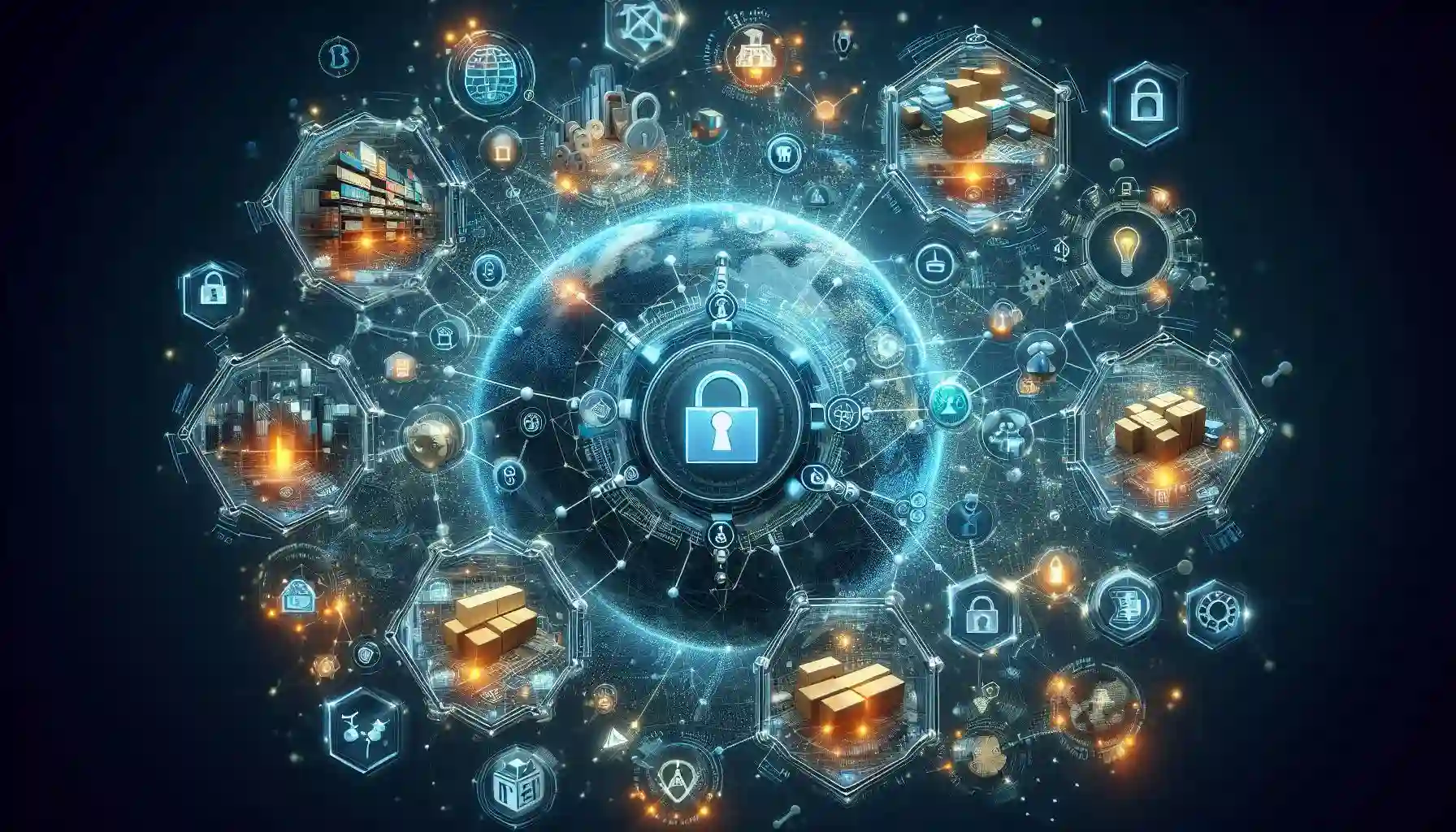Guest Post by Ian Kane, Head of Partnerships at Midnight Network
Importance of Supply Chain Transparency
In our globalized economy, supply chain transparency is crucial. Consumers want to know the origins of their products, regulatory bodies demand strict compliance, and companies must ensure the integrity of their supply chains. Traditional methods for managing and verifying supply chains can be cumbersome, opaque, and susceptible to fraud.
Blockchain and Zero-Knowledge Proofs
Blockchain technology and Zero-Knowledge Proofs (ZKPs) offer innovative solutions for enhancing transparency while maintaining privacy and security. This article examines the transformative potential of ZKPs in supply chain transparency and their importance for the future.
Understanding Zero-Knowledge Proofs
Zero-Knowledge Proofs are cryptographic protocols allowing one party (the prover) to prove to another (the verifier) that a statement is true without revealing additional information. This concept ensures privacy and security, making it ideal for applications like supply chain management.
Key Properties of Zero-Knowledge Proofs
- Completeness: If the statement is true, an honest prover can convince the verifier of its truth.
- Soundness: If the statement is false, no dishonest prover can convince the verifier otherwise.
- Zero-Knowledge: If the statement is true, no additional information about the statement is revealed to the verifier.
Why Supply Chain Transparency Matters
Supply chain transparency means complete visibility of all processes, from raw material sourcing to final product delivery. This transparency is vital for several reasons:
- Consumer Trust: Transparency builds trust and loyalty among consumers who care about the ethical and environmental impact of their purchases.
- Regulatory Compliance: Governments require detailed documentation and verification of supply chain processes to ensure compliance with laws and standards.
- Risk Management: Transparent supply chains help identify and mitigate risks such as fraud, counterfeiting, and quality control issues.
- Sustainability: Transparency supports sustainable practices by allowing companies to track and verify the origin of materials and their environmental impact.
Enhancing Transparency with Zero-Knowledge Proofs
Zero-Knowledge Proofs enhance supply chain transparency by enabling secure and private verification of supply chain data.
Verifiable Claims Without Disclosing Details
Sensitive information like proprietary processes, trade secrets, and personal data must be protected in supply chains. ZKPs allow companies to prove the validity of claims without disclosing underlying details.
Use Case: Ethical Sourcing A company can prove its raw materials are sourced ethically without revealing specific supplier details, ensuring compliance with ethical standards while maintaining confidentiality.
Secure Audits and Compliance
Regular audits are necessary to ensure supply chain integrity and compliance. ZKPs enable secure and private audits, allowing auditors to verify compliance without exposing sensitive data.
Use Case: Regulatory Compliance A company can prove regulatory compliance without revealing proprietary business information, streamlining the audit process and protecting confidentiality.
Anti-Counterfeiting and Product Authentication
Counterfeiting is a significant issue, causing financial losses and reputational damage. ZKPs help verify product authenticity without revealing proprietary information.
Use Case: Luxury Goods A luxury goods manufacturer can prove product authenticity throughout the supply chain, ensuring consumers receive genuine items without disclosing manufacturing techniques or supplier details.
Streamlined and Secure Data Sharing
Supply chains involve multiple stakeholders, each requiring specific information. ZKPs enable secure, selective data sharing, ensuring only necessary information is disclosed.
Use Case: Logistics and Shipping Logistics providers can prove shipments have met required conditions without revealing detailed shipment logs, ensuring process integrity while protecting data.
Real-World Applications of Zero-Knowledge Proofs
Several projects and platforms leverage Zero-Knowledge Proofs to enhance supply chain transparency:
Midnight Network The Midnight Network integrates ZKPs and other cryptographic techniques to balance transparency and confidentiality in blockchain transactions. This is ideal for industries like financial services, healthcare, and supply chain management.
IBM Food Trust IBM Food Trust is a blockchain-based platform enhancing transparency in the food industry. ZKPs allow stakeholders to verify product authenticity and safety without disclosing sensitive supplier information.
VeChain VeChain provides supply chain solutions for various industries, using ZKPs for secure, private verification of supply chain data.
Everledger Everledger tracks and verifies the provenance of high-value assets like diamonds and art. ZKPs ensure authenticity and ethical sourcing without revealing sensitive supply chain details.
Future of Supply Chain Transparency
The integration of ZKPs into supply chain management is still in its early stages, but the potential is immense. As the technology matures, we can expect more innovative applications and widespread adoption.
Enhanced Privacy Solutions
Future supply chain systems will likely incorporate advanced ZKP-based privacy solutions, ensuring confidential information remains protected while providing necessary transparency.
Greater Interoperability
Interoperability between different supply chain systems is essential. ZKPs facilitate secure interactions between stakeholders, enhancing interconnectedness.
Regulatory Compliance
ZKPs help balance privacy and compliance by enabling confidential verification that meets regulatory requirements, crucial for mainstream adoption of ZKP-based solutions.
Improved Efficiency and Trust
Using ZKPs in supply chain management can streamline verification processes, reduce costs, and enhance trust among stakeholders. This will attract more companies to adopt blockchain-based supply chain solutions.
Challenges and Considerations
While ZKPs offer immense potential, challenges remain:
- Computational Complexity: ZKPs require significant resources for generating and verifying proofs. Research is focused on optimizing these processes for efficiency and scalability.
- Trusted Setup: Some ZKP schemes require a trusted setup, a potential vulnerability if not conducted properly. Solutions like zk-STARKs address this issue by eliminating the need for a trusted setup.
- Usability and Integration: Integrating ZKPs into existing systems can be complex. Ensuring seamless usability and integration is crucial for adoption.
- Education and Awareness: Increasing education and awareness about ZKPs and their benefits is essential for driving adoption.
Conclusion
Zero-Knowledge Proofs are set to play a pivotal role in supply chain transparency by providing secure, private, and scalable solutions. As the technology evolves, we can expect enhanced privacy, improved interoperability, and greater regulatory compliance. While challenges remain, the potential benefits make ZKPs a key component of the next generation of supply chain management.
The post Beyond Privacy: Zero-knowledge applications in supply chain transparency appeared first on CryptoSlate.















